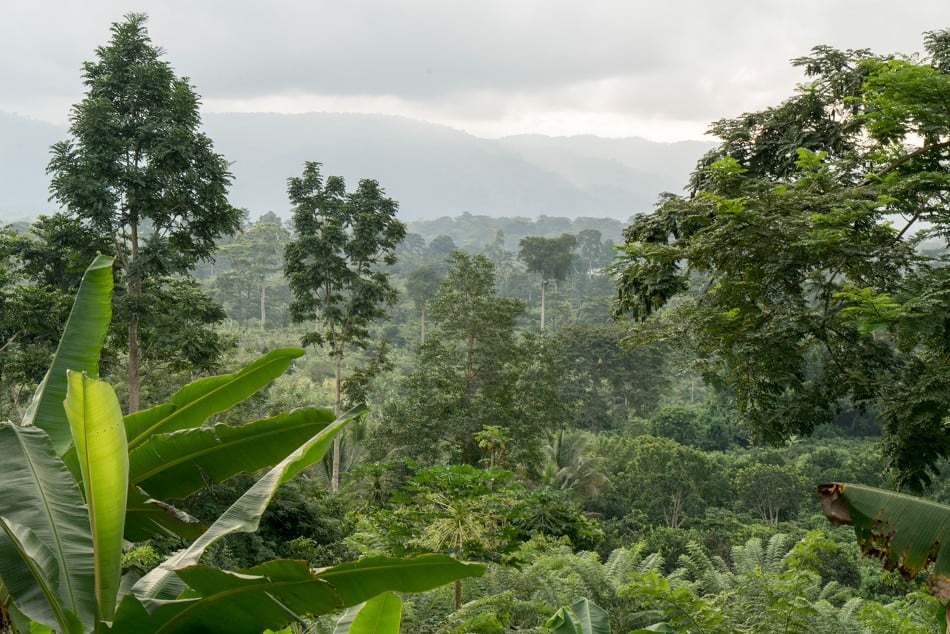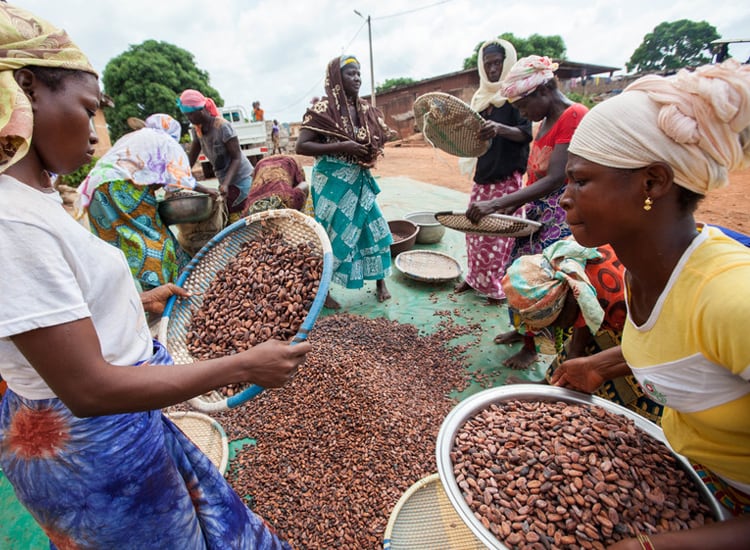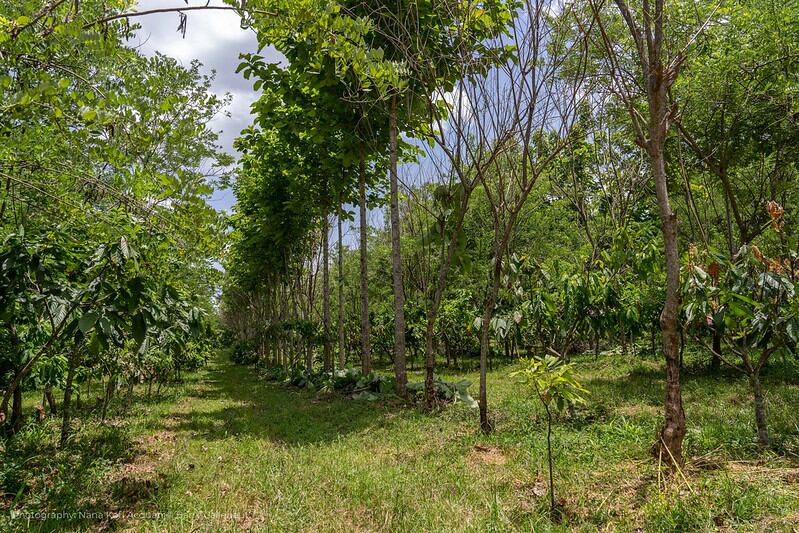Six years ago, major cocoa and chocolate companies, including ofi, came together with the governments of Côte d’Ivoire and Ghana and the World Cocoa Foundation with the shared goal of eliminating deforestation and restoring degraded forests. The Cocoa & Forests Initiative (CFI) was born to help drive collective action and investment, from improving traceability to addressing deforestation risks to new government policies, building on existing company efforts to address some root causes.
But what does the initiative really mean for a cocoa farmer in West Africa? A farmer with only a small plot of land, who is struggling to grow enough cocoa to earn a living income and support their family. Talk of collective action or industry change can often seem remote from the daily challenges that they face.
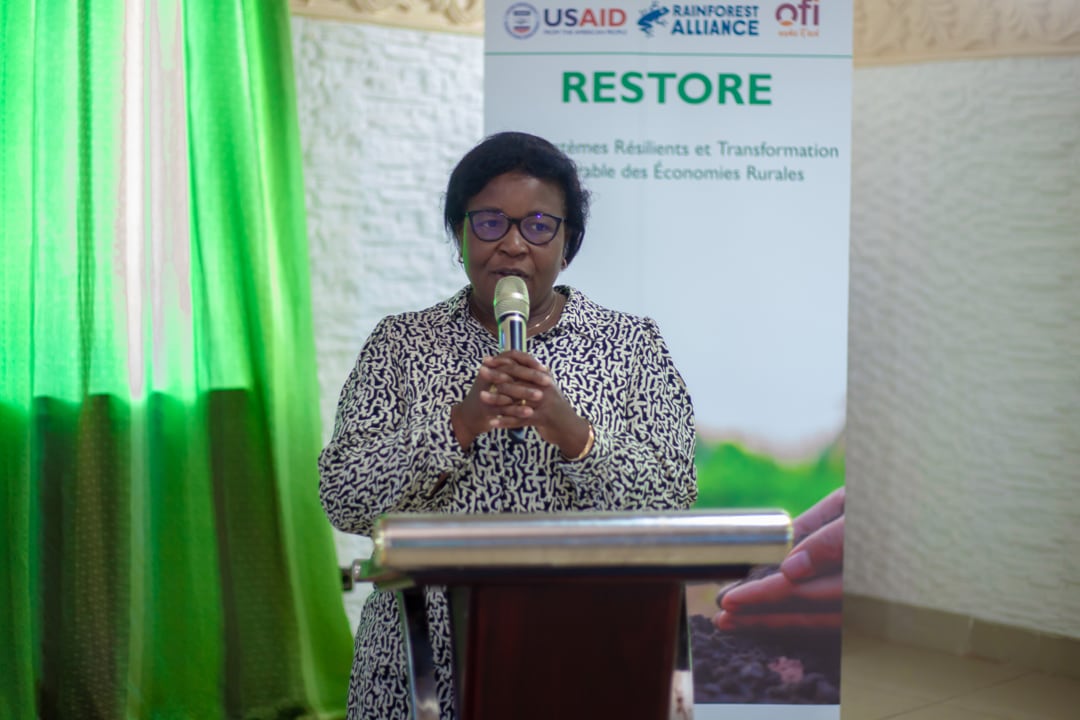
It starts with understanding
To put it simply, it all comes down to understanding. Understanding the landscape, you are operating in. Understanding the communities, you work with and the economic forces shaping them. And understanding the bigger picture about how you can collaborate with others to achieve more than might be possible alone.
Understand the landscape
Everyone involved in sustainable development agrees that we need landscapes that are economically, ecologically, and socially resilient. But how do we find the balance between the need for agriculture and the preservation of biodiversity and natural habitats? To achieve balance, we must address the expansion of agriculture at the expense of nature and restore ecology.
From how we support the different communities living in that landscape to how we protect biodiversity and ecosystems, capture carbon, and work towards zero-deforestation landscapes. We must look beyond and not view individual supply chains and initiatives in isolation.
Understanding where and how deforestation linked to agriculture is happening in the first place is critical. At ofi, we have achieved 100% deforestation monitoring in our direct cocoa supply chain across nine countries as part of Cocoa Compass – our wider sustainability ambition. And now we’re taking that further by polygon mapping the farms in our global sustainability programmes. This provides an extra layer of insight and helps me and my team act to prevent deforestation by giving cocoa communities the training and support they need to protect and appreciate forests as important for creating favourable climatic conditions for cocoa cultivation.
Understand the community
We are based on the ground in Côte d’Ivoire operating all year round, so we get to know the communities we source from and their challenges. Those challenges are often economic: producing enough to support their families on the small amount of land they have. That’s true for Delphine, a cocoa farmer in Brunokro, in the central west of Côte d'Ivoire, who was struggling with falling cocoa yields when we began working with her as part of the Rainforest Alliance certification scheme in 2020.
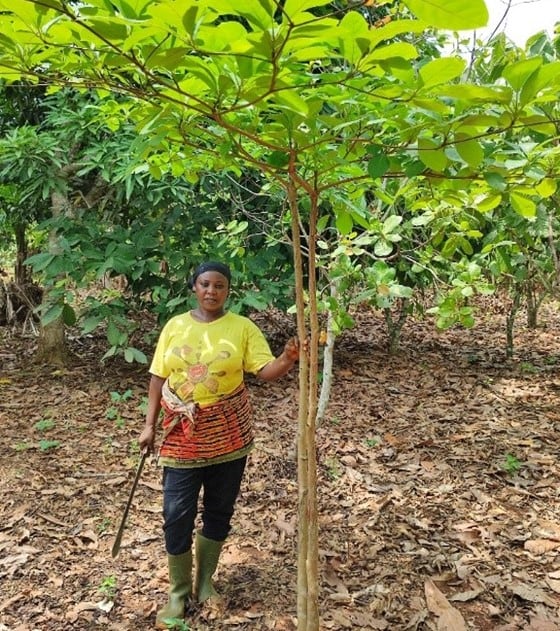
Our teams have been helping farmers like Delphine increase their yields. We’re doing this through a combination of bespoke Farm Development Plans that provide each farmer with tailored advice and support, Good Agricultural Practices training, and shade trees as an adaptation measure to ensure the resilience of the cocoa farm against climate change. When Delphine applied these activities to her farm, it resulted in approximately a 30% increase in yields, which she can use to support her family.
We’re also helping farmers and communities to expand their skills and diversify their incomes beyond cocoa farming. For example, by providing training opportunities to women in activities like plantain trading and vegetable or snail farming. Take Agnes, a cocoa farmer in Nyinahin Ghana, whom we’ve helped set up a soap-making business that is now making a healthy profit. Equipping women like Agnes with the right tools and knowledge is a powerful way to improve livelihoods and support entrepreneurial development.
Understand the full picture
From how we support the different communities living in that landscape to how we protect biodiversity and ecosystems, capture carbon, and work towards zero-deforestation landscapes. We must look beyond and not view individual supply chains and initiatives in isolation. So, it is promising that the second phase of CFI will focus on protecting forests at a landscape level.
At ofi, we’ve seen the incredible potential of taking a landscape approach. Our work with The United States Agency for International Development and the Rainforest Alliance in the Resilient Ecosystems and Sustainable Transformation of Rural Economies (RESTORE) project is a great example of bringing together community members, local farmers, civil society, and local government to transform the landscape. Over the next five years, we’ll be working to scale the planting of trees to promote agroforestry and increase tree cover to absorb carbon, as well as support cocoa farmers to improve the productivity and sustainability of their farms.
While the first five years of CFI have seen notable progress and results, as an industry, we still have a long way to go in creating a cocoa industry that works for everyone. From supporting the livelihoods of farmers and communities to protecting the environment and promoting biodiversity, I’m excited by the renewed commitment of CFI 2.0 to accelerate and drive impact on the ground.
- Léonie Bonnehin-Verrier, Head of Cocoa Agroforestry for West Africa, ofi

